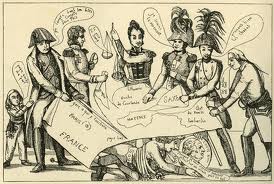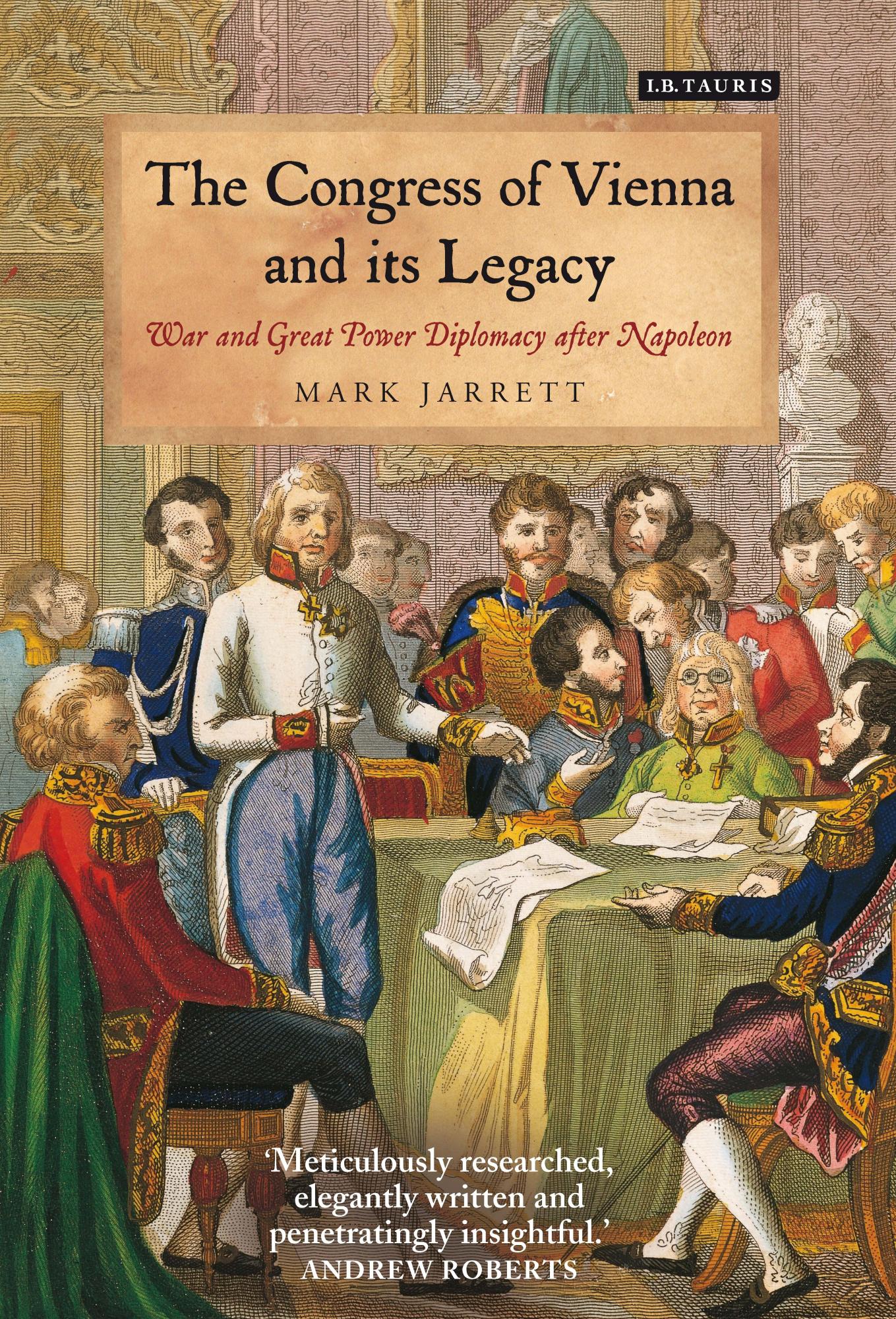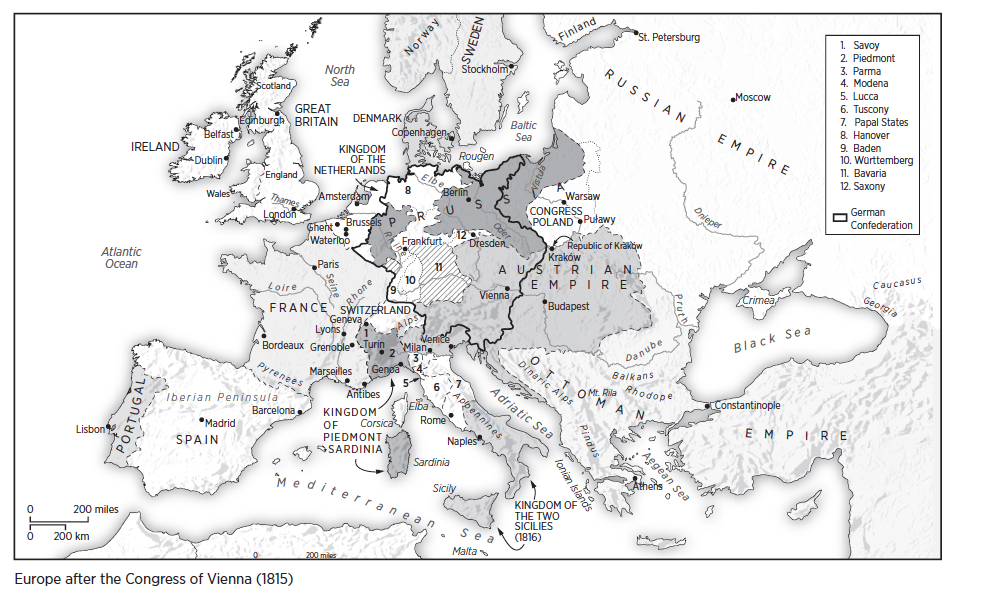Praise for The Congress of Vienna and Its Legacy
“A meticulously researched, elegantly written and penetratingly insightful portrait of one of the key moments in the past millennium of European history.”
—Andrew Roberts, author of Napoleon: A Life and Napoleon and Wellington
“The system established by the Congress of Vienna is of great interest to both historians and political scientists, and Mark Jarrett's is one of the rare treatments that will appeal to both groups. His narrative gives clear guidance through the complexities of the era and his analysis engages the central arguments about the period. It is a model treatment. It really is THE book on the period and will attract and enlighten readers for a generation to come.”
—Robert Jervis, Professor of International and Public Affairs and Adlai E. Stevenson Professor of Political Science, Columbia University, and former President of the American Political Science Association
“Jarrett’s massive and impressively researched volume promises to become our generation’s authoritative study of the peace settlements of 1814-1815. Jarrett begins with the wars of the French Revolution, shows how they morphed into Napoleon Bonaparte’s wars for empire from 1801 and 1805, then recounts how the adversaries of France fitfully coalesced, sometimes attempted their own alliances with Bonaparte, and finally came together to defeat his over-extended armies. He follows with great clarity the negotiation of the settlements and the decade of post-Vienna diplomacy and interventions from 1815 to 1825 . . . Jarrett follows these two crowded decades with admirable narrative clarity and thoroughness -– concluding with the last hurrah of successful great-power agreement by the 1830s to establish a Greek monarchy and to recognize a separate Belgian kingdom. Given the frequent reshuffling of territories and regime forms and the proliferation of treaties made, broken, and remade, the book is a great achievement.”
—Charles Maier, Leverett Saltsonstall Professor of History, Harvard University
“Mark Jarrett illuminates a vital two decades in European history that have long been neglected. His is indeed a wonderful book—clearly written, extremely well-researched, open to a whole variety of explanations from historians and political scientists, well balanced, fair in its judgements of historical characters and contemporary academic opinion, and seminal in its allusions to present-day events. I have little doubt that this book will become the standard work on the Congress System.”
—Alan Sked, Professor of International History, London School of Economics and Political Science
“I profited enormously from reading this splendid book which will certainly be the standard work on the Vienna Congress for the next years, if not decades, to come.”
—Eckart Conze, Professor of History, University of Marburg
“Mark Jarrett's beautifully written book deploys a great deal of information without ever getting lost in detail. It weaves together personality and policy, providing a clear analysis of political structures as well as a vivid portrait of personalities.”
—James J. Sheehan, Professor of Modern European History Emeritus, Stanford University, and former President of the American Historical Association
“Jarrett’s ground-breaking book is essential reading for anyone interested in peace-making and conflict resolution in the nineteenth century. Erudite, compelling, and finely-argued, it offers a new interpretation of the development of the Congress system of international diplomacy from the Congress of Vienna on. The analysis of the politics of intervention will be of particular interest to people interested in international relations and the crises of the 21st century, and it is packed with wonderful pen-pictures of some of the most colourful political figures of the age.”
—Patrick Geoghegan, Professor of History, Trinity College Dublin, host of the weekly radio program "Talking History," and author of The Irish Act of Union and Castlereagh
“This will become the definitive work on the Congress of Vienna with all its personalities, intrigues and significance for the nation state and how we think of diplomacy today.”
—James Warlick, U.S. Co-Chair of the Organization for Security and Cooperation in Europe (OSCE) Minsk Group and former US Ambassador to Bulgaria
“Jarrett’s book is an excellent analysis of the studied subject, a worthy read for scholars as well as students and the general public for its academic value and complexity as well as the lucid and articulate narration. The clarity of the narrative results not only from the well-arranged structure and readable style but also from useful supplements like maps, a chronological overview and the annotated list of the most significant personalities. . . Mark Jarrett’s book is a commendable, scholarly effort. I dare to say that it became a classic work on the Congress of Vienna and the congress period after 1815 at the very moment of its publication . . .”
—Miroslav Šedivy, University of West Bohemia, Czech Republic, Review in the Austrian History Yearbook (forthcoming)
“This book is more than a comprehensive and richly detailed account of the complex diplomatic and international relations in post-Napoleonic Europe, which will undoubtedly become a standard reference . . . It is more importantly, a fascinating journey through the Europe of early the nineteenth century, from Sicily to Russia, from England to the Balkans . . . The Congress of Vienna and its Legacy successfully combines well-balanced historical research with fresh and vivid history-telling in the best sense of the word, truly enjoyable for all kinds of readers. This is one of the most comprehensively documented and captivating books on the history of the Congress System published in years.”
—Stella Ghervas, Harvard University, and author of Réinventer la tradition. Alexandre Stourdza et l’Europe de la Sainte-Alliance (winner of the Guizot Prize of the Académie Française, 2009)
“Mark Jarrett’s work takes its place as the most reliable and detailed narrative of the period of Congress diplomacy from 1814 to 1822, surpassing the older works of Harold Nicolson and Henry Kissinger as well as the newer volumes of Jacques-Alain Sédouy . . . Across the whole span, Jarrett knowledgably interweaves the historical context and background, in a way that should serve the needs of general readers while also offering something for period specialists.”
—Brian Vick, Emory University and author of The Congress of Vienna
“Jarrett is a terrific storyteller, enlivening his narrative with memorable vignettes. . . .In an attempt to extend the scope of his narrative, Jarrett delves into IR debates around the balance of power, security communities, and related subjects . . . The primary contribution of The Congress of Vienna . . . lies in the book’s comprehensive account of the Vienna settlement and its exemplary archival research.”
—George Lawson, Associate Professor of International Relations, London School of Economics and Political Science
“One of the strengths of The Congress of Vienna is its emphasis on the leaders’ deep-seated suspicion and fear of revolution. Britain’s Lord Castlereagh shared the conservative sympathies of his European counterparts, but the continental powers’ desire for counterrevolutionary intervention led Britain to distance itself by the early 1820s. This story has been told before, but Jarrett’s account is distinctive in the detail with which it shows how an explicit policy of counterrevolution proved incompatible with British parliamentary politics.”
—Matthew Rendall, Lecturer in Politics and International Relations, University of Nottingham
“This meticulous and well-written study is not only about the Congress of Vienna but also about the often neglected era of the formation of the Concert of Europe: it has now become the standard reference work for the history of international relations in the aftermath of the Napoleonic Empire. The book provides new insights and fresh perspectives on the diplomatic and political conduct of the European powers in a period marked by international conflict and crisis, and reveals the methods and strategies adopted by the powers to restore peace and to sustain stability. Their international cooperation and collaboration marked the beginning of a new era of peace, lasting for 100 years and ending only with the onset of World War I.”
—Karin Schneider, University of Innsbruck



